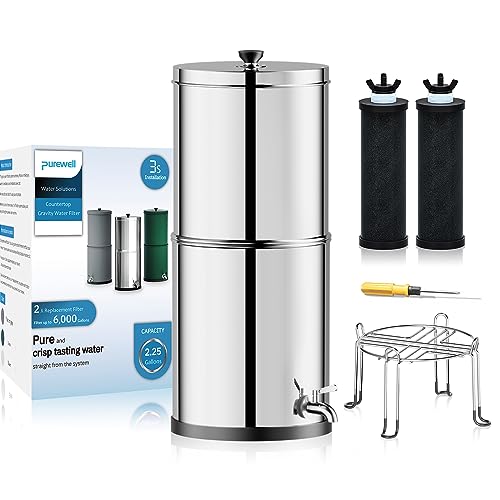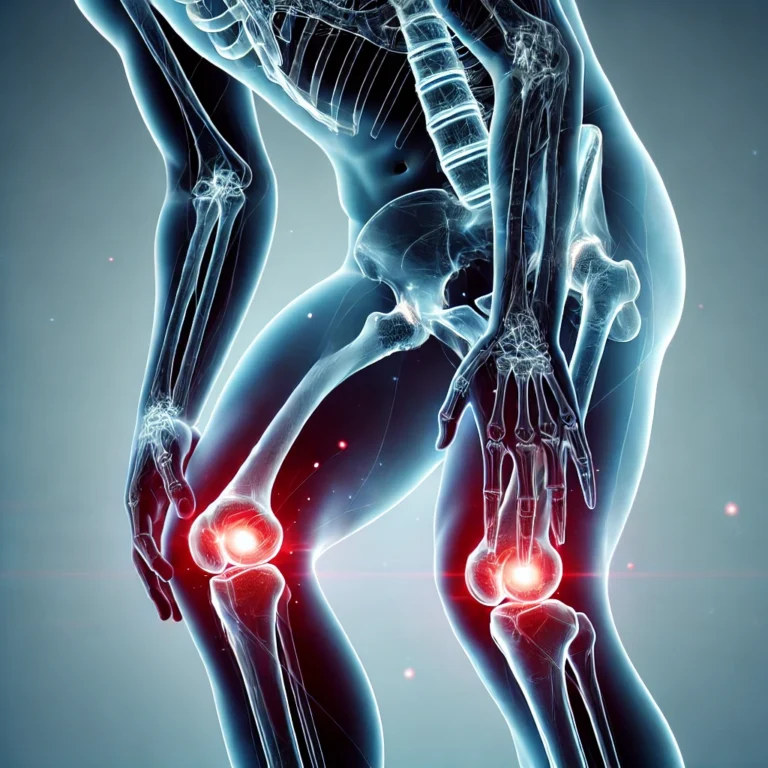*This post may contain affiliate links for which I earn commissions.*
Many seniors today are exploring alternative medicine as an essential component of their healthcare regime. This growing interest stems from several factors, including dissatisfaction with conventional treatments, which often focus primarily on symptom management rather than addressing the root cause of health issues. Alternative therapies, such as acupuncture, herbal medicine, chiropractic care, yoga, and meditation, are gaining popularity because they tend to have fewer side effects compared to prescription medications and surgeries. Additionally, these therapies emphasize a holistic approach to health, focusing on the interconnectedness of the body, mind, and spirit, which many seniors find aligns more with their desire for improved quality of life. The rising costs of traditional healthcare have also played a significant role in this shift. As medical expenses, prescription drug prices, and insurance premiums continue to increase, many seniors find themselves seeking more affordable and accessible options. Alternative medicine often provides cost-effective solutions that help manage chronic conditions and promote preventative care, reducing the need for frequent medical interventions.
What Is Alternative Medicine
Alternative medicine is a broad term covering various practices that weren’t typical of conventional medical care in the first world. These range from acupuncture and chiropractic care to herbal remedies and meditation. Acupuncture has been practiced for over 2,500 years. It originated in ancient China and is one of the oldest healing practices in the world. Historical records suggest that acupuncture was already well established in Chinese medicine by the time of the Han Dynasty (206 BCE – 220 CE).
Do Alternative Medical Therapies Work?
Each offers unique benefits and has its own principles and methodologies. Understanding the variety within alternative medicine can help seniors make more informed choices about their healthcare options. The rising interest among seniors in alternative therapies can be attributed to several reasons. First, conventional treatments sometimes fall short of providing relief for chronic conditions commonly seen in older adults. Pain management, for instance, can be especially challenging. Secondly, a growing body of evidence supports some alternative treatments’ effectiveness. Studies have shown that therapies like acupuncture and mindfulness can significantly alleviate pain and stress, enhancing the quality of life.

Senior Health Care Should be Personal
Another key reason is the desire for a more personal touch in healthcare. Alternative medicine often involves extended consultation times, a focus on the patient as a whole, and treatments tailored to individual needs. This contrasts with the usually rushed and impersonal encounters many seniors experience within the conventional healthcare system, which, more often than not, wants them out of the surgery door with a new repeat prescription. Just a thought: if you don’t think that alternative medicine, why do you need a repeat prescription?
Choosing alternative medicine doesn’t mean abandoning traditional healthcare. Instead, it’s about enhancing comprehensive care. By embracing both conventional and alternative methods, seniors can address a wider spectrum of health issues, potentially leading to better outcomes and more satisfying healthcare experiences. Aligning the strengths of both approaches allows older adults to benefit from a holistic and balanced health strategy.
Does Diabetes Kill?
While the condition itself does not directly “kill,” its long-term effects can severely damage vital organs, including the heart, kidneys, eyes, and nervous system. Chronic high blood sugar levels increase the risk of heart disease, stroke, kidney failure, and infections that are harder to fight off, especially in cases of Type 2 diabetes
Historical Context: Evolution of Alternative Medicine in Healthcare
Alternative medicine has a rich history that spans across different cultures and centuries. Long before modern medicine became mainstream, societies relied heavily on natural remedies and holistic practices to treat ailments. Traditional Chinese Medicine (TCM), Ayurveda from India, and various indigenous healing practices around the world are prime examples. Each of these practices has evolved, yet they retain their core principles that focus on balance, harmony, and the body’s natural ability to heal itself.
A number of milestones have marked the integration of alternative therapies into conventional healthcare. For instance, acupuncture, once viewed skeptically, is now widely recognized and offered in many clinics and hospitals. Chiropractic care, originating in the late 19th century, has also gained acceptance, particularly for treating musculoskeletal issues. The 20th century saw further growth with the emergence of naturopathy and homeopathy in Western countries.
Public perception of alternative medicine has undergone significant changes. Initially dismissed or relegated to the fringe, these practices have steadily gained respect and recognition, partly due to scientific validation. Rigorous studies and clinical trials have demonstrated the efficacy of certain alternative treatments, leading to their wider acceptance. This shift reflects a growing acknowledgement that a single approach to healthcare is often insufficient.
The journey of alternative medicine from ancient wisdom to modern acceptance is a testament to its enduring relevance. As scientific research continues to shed light on these practices, they become more integrated into mainstream healthcare. This evolution shows a trend towards more inclusive and comprehensive health strategies that consider both body and mind.
For seniors, understanding this historical context is beneficial. It highlights the long-standing roots and the journey toward validation and acceptance. This knowledge can instill confidence in exploring alternative therapies, reassuring them that these are time-tested methods with growing scientific backing.
“Natural forces within us are the true healers of disease.”
Hippocrates
Common Types of Alternative Medicine Utilized by Seniors
Among the variety of alternative medical practices available, several stand out as particularly popular and beneficial for seniors. Acupuncture, chiropractic care, and herbal medicine are some of the most commonly used therapies that cater to the specific health needs of older adults.
Acupuncture involves inserting thin needles into specific points on the body to balance the flow of energy or ‘Qi’. Its benefits include pain relief, reduced nausea, and better overall wellness. Research indicates that acupuncture can be particularly effective in managing chronic pain conditions often experienced by seniors, such as arthritis and back pain.
Chiropractic care focuses on diagnosing and treating mechanical disorders of the musculoskeletal system, particularly the spine. For seniors dealing with conditions like osteoarthritis, sciatica, or general back pain, chiropractic treatment can offer significant relief. Regular adjustments can improve mobility, reduce discomfort, and enhance the quality of life.
Herbal medicine utilizes plant-based remedies to treat various health issues. Common herbs like turmeric, ginger, and ginkgo biloba have been shown to help with inflammation, digestion, and cognitive function. When considering herbal treatments, it’s important for seniors to consult with healthcare providers to avoid interactions with prescribed medications.
Beyond these, practices like yoga, tai chi, and reiki also attract many seniors. Yoga and tai chi enhance flexibility, strength, and balance, reducing the risk of falls. These gentle exercises also promote mental clarity and relaxation. Reiki, a form of energy healing, helps in stress reduction and overall emotional well-being.
Each of these alternative treatments comes with its own set of advantages. Acupuncture and chiropractic care are particularly noted for their non-pharmaceutical approach to pain management, making them appealing to those looking to reduce medication intake. Herbal medicine offers a natural way to address a variety of health concerns, while practices like yoga and tai chi provide both physical and mental benefits.
While these therapies offer promising benefits, seniors should approach them wisely. Consulting with healthcare providers is essential to ensure these treatments complement existing medical regimes. Proper research and choosing qualified practitioners can enhance the effectiveness and safety of these alternative medicines.
The Benefits of Integrating Alternative Medicine for Seniors
Integrating alternative medicine into senior healthcare brings numerous advantages. One major benefit is pain management. Many older adults contend with chronic pain from conditions like arthritis, and alternative therapies can offer relief without the heavy reliance on pharmaceuticals. Acupuncture and chiropractic care, for instance, have been proven to help manage pain effectively, allowing seniors to maintain a more active lifestyle.
Mental and emotional well-being also sees significant improvement with alternative medicine. Therapies such as meditation, yoga, and tai chi promote relaxation and reduce stress, contributing to better mental health. Maintaining emotional balance is vital for overall wellness, especially for seniors navigating the complexities of aging.
Beyond pain relief and mental health, alternative medicine can enhance overall quality of life. Practices like herbal medicine and nutritional therapy offer ways to support the body’s natural functions. For example, certain herbs can improve digestion and boost immunity, addressing common issues faced by the elderly population.
Holistic approaches consider the whole person rather than just symptoms. This is critical as seniors often deal with multiple health issues simultaneously. A treatment plan that includes various alternative therapies can provide a more balanced and comprehensive healthcare experience. This kind of integrative approach fosters a sense of well-being not just physically but mentally and emotionally as well.
One more significant benefit is the empowerment that comes with being actively involved in one’s health journey. Alternative medicine often encourages lifestyle changes and personal involvement in health decisions, which can be incredibly empowering for seniors. This active participation can lead to better compliance with treatment plans and a more proactive approach to health maintenance.
Challenges and Concerns with Alternative Medicine for Seniors
While alternative medicine offers many benefits, it’s important to understand the potential risks and concerns, especially for seniors. Not all alternative therapies are free from side effects, and some may interact with conventional treatments.
One major concern is the quality and regulation of herbal supplements. Unlike prescription medications, herbal products are often not subject to the same rigorous testing. This might lead to variations in strength and purity, sometimes posing a risk for seniors, particularly those with pre-existing medical conditions. Choosing products from reputable sources is crucial, and healthcare providers should be consulted before starting any new supplement.
Another challenge is the potential for interactions between alternative therapies and existing medications. For example, certain herbs can interfere with blood thinners or other vital medications. Seniors should always discuss any alternative treatments with their doctors to avoid harmful interactions. Being well-informed helps mitigate these risks and ensures a safer integration of alternative medicine into their healthcare routine.
Skepticism remains another significant barrier for some. Despite growing acceptance, many still question the effectiveness of alternative medicine due to a lack of extensive scientific research. Although some therapies have substantial evidence supporting their efficacy, others might still be considered experimental. Seniors need to critically evaluate the information and rely on trusted sources when considering alternative treatments.
Cost can also be a factor. While some alternative therapies are covered by insurance, many are not, potentially leading to out-of-pocket expenses. This can deter seniors from trying out beneficial therapies. It’s a good idea to check with insurance providers about coverage and seek practitioners who offer affordable rates without compromising quality.
Accessibility is another concern. Not all seniors have easy access to alternative therapy practitioners, particularly those living in rural areas. Telehealth options are expanding, but they may not be suitable for all types of alternative treatments. It’s helpful to explore local options and online resources to find nearby practitioners or virtual consultations where appropriate.
Balancing these challenges involves thorough research, consulting with healthcare professionals, and making informed decisions. Understanding the potential risks and being proactive about addressing concerns can help seniors safely and effectively incorporate alternative medicine into their healthcare regimens.
Case Studies: Successful Integration of Alternative Medicine for Elderly Patients
Real-life examples often illustrate the value of alternative medicine better than theory alone. Sue, a 70-year-old arthritis sufferer, sought relief through conventional treatments but found little solace. After consulting with her healthcare provider, she integrated acupuncture into her treatment plan. Within months, she reported significant pain reduction and increased mobility, allowing her to enjoy activities she had long abandoned.
Another compelling case is John, a senior experiencing chronic back pain. Chiropractic care provided the breakthrough he needed. After regular sessions, not only did his pain diminish, but he also noticed an improvement in his overall posture and energy levels. This holistic approach helped John, proving that physical issues often require comprehensive solutions.
In addition, there’s Mary, who turned to herbal medicine for managing her digestive issues. With her doctor’s guidance, she incorporated dietary changes and herbal supplements like peppermint and ginger. Her symptoms improved dramatically, and she found herself more energetic and engaged in daily life.
Healthcare providers also offer valuable insights. Dr. Emily, a geriatric specialist, shares an example from her practice. She treated a patient with severe anxiety using a combination of mindfulness meditation and conventional anxiety medications. The patient experienced a reduction in anxiety levels and reported a better quality of life overall.
Lessons learned from these cases highlight the importance of a collaborative approach. When patients and healthcare providers communicate openly and explore both conventional and alternative treatments, the outcomes can often surpass expectations.
Navigating the World of Alternative Medicine: Tips for Seniors
Choosing the right alternative medicine practitioner is essential. Not all providers are equally qualified, so it’s important to research credentials and certifications. Look for practitioners who are licensed and have good reviews from other patients.
Asking the right questions can make a big difference. When meeting with a potential practitioner, inquire about their experience with treating older adults, the specific conditions they specialize in, and their approach to integrating alternative medicine with conventional care. Knowing these details can help in making an informed decision.
It’s also crucial to keep your primary healthcare provider informed about any alternative treatments you are considering or currently using. This ensures that all aspects of your health care are coordinated and that there are no harmful interactions with your existing medications.
Don’t shy away from seeking second opinions. Just like with conventional medicine, getting another perspective can provide valuable insights and affirm your decision. Alternative medicine is a personal journey, and feeling confident in your choices is important.
Understand that trial and error might be part of the process. Some treatments may work better than others, and it might take a few tries to find the most effective therapy. Patience and openness to different methods can lead to the best results.
Financial considerations are also important. Some alternative therapies might not be covered by insurance, so checking costs upfront is wise. Look for practitioners who offer flexible payment options or sliding scale fees based on income.
Educational resources can be invaluable. Books, online courses, and workshops on alternative medicine for seniors can provide deeper insights and empower you to make informed choices. Knowledge is a powerful tool in navigating this space.
The Future of Alternative Medicine in Senior Healthcare
Emerging trends in alternative medicine hold promise for the future of senior healthcare. One such trend is the increasing use of personalized medicine, which tailors treatments to an individual’s genetic makeup, lifestyle, and specific health. Health apps can monitor vital signs and progress, offering real-time feedback to both patients and practitioners.
Another exciting development is the growing body of research supporting the efficacy of alternative treatments. As scientific studies continue to validate the benefits of therapies like acupuncture, herbal medicine, and mind-body practices, these methods are likely to gain broader acceptance and integration into mainstream healthcare.
The role of community and social support can’t be overlooked. Group classes for yoga, tai chi, or meditation not only provide physical benefits but also foster a sense of community and reduce feelings of isolation often experienced by seniors. This social aspect can significantly enhance overall well-being.
Looking ahead, the fusion of conventional and alternative medicine appears to be the most promising path. Integrative healthcare centers that offer both types of treatments under one roof are becoming more common. This holistic approach can address the diverse needs of seniors more comprehensively, leading to better health outcomes and enhanced quality of life.
Seniors today are more open to exploring different healthcare options than previous generations. As awareness and acceptance of alternative medicine continue to grow, the future looks bright for an integrative approach that combines the best of both worlds. This trend not only enriches senior healthcare but also sets a precedent for a more versatile and inclusive medical system overall.
Conclusion The Role Of Alternative Medicine In Modern Senior Healthcare.
Alternative medicine plays an increasingly important role in senior healthcare. It complements conventional medicine, offering solutions that focus on physical, mental, and emotional well-being. The integration of these therapies can lead to more comprehensive and effective health strategies.For seniors, embracing a complementary approach means considering both traditional and alternative treatments. This balanced method not only addresses specific health issues but also enhances overall quality of life. It’s about taking a proactive role in one’s health journey, staying informed, and making choices that align with personal needs and preferences.The future of senior healthcare lies in the seamless blending of conventional and alternative practices. With growing acceptance and scientific backing, alternative medicine is set to become a staple in holistic healthcare approaches. By keeping an open mind and utilizing the resources available, seniors can achieve optimal health and well-being. Collaboration between patients, doctors, and alternative medicine practitioners fosters a supportive healthcare environment. Through open communication and a willingness to explore different treatments, the journey toward health becomes more inclusive and effective.As we look to the future, the goal is clear: a more holistic and integrated healthcare system that values and utilizes the best of both conventional and alternative medicine. This combined approach promises a healthier, happier, and more fulfilling life for seniors everywhere.







